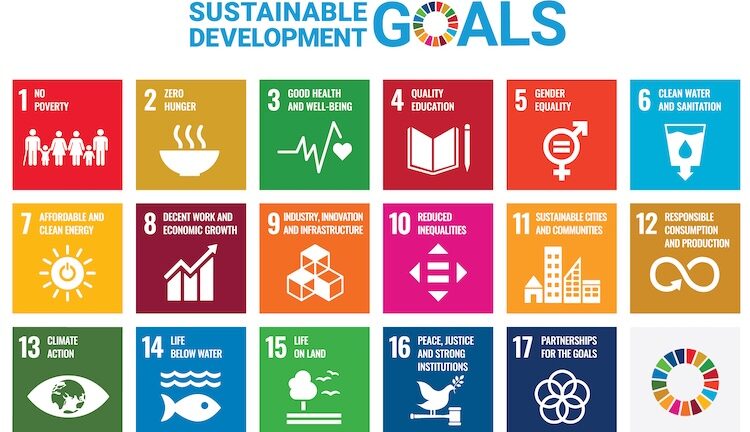By J Nastranis
NEW YORK | 15 July 2025 (IDN) — A decade after the world embraced the 2030 Agenda for Sustainable Development, a new UN report warns that progress toward its ambitious goals is far too slow. While millions of lives have improved, the Sustainable Development Goals Report 2025 shows that only a third of global targets are on track — and time is running out.
The report finds that just 35% of SDG targets are either on track or making moderate progress, while nearly half are moving too slowly. Eighteen per cent have regressed, raising fears that the international community may fall short of achieving its goals to end poverty, protect the planet, and ensure prosperity for all by 2030.
“We are facing a development emergency,” said UN Secretary-General António Guterres. “But this report is more than a snapshot of today. It’s a compass pointing the way forward. The Sustainable Development Goals are still within reach — but only if we act with urgency, unity, and unwavering resolve.”
Progress Amid Global Turmoil
Despite mounting global challenges — from pandemic shocks to geopolitical tensions and climate extremes — the report outlines several notable achievements across health, education, infrastructure, and equality.
Health outcomes have improved significantly. New HIV infections have dropped by 40% since 2010, and malaria prevention efforts have averted 2.2 billion cases and saved 12.7 million lives since 2000. Maternal mortality declined from 228 to 197 deaths per 100,000 live births between 2015 and 2023. Under-five mortality fell by 16% during the same period.
More children and youth are attending school. Since 2015, 110 million more young people have entered education systems, and child marriage is in decline, driven in part by more girls staying in school. Fifty-four countries have eliminated at least one neglected tropical disease, and women are making significant political gains: as of early 2025, women hold 27.2% of parliamentary seats, up from 22.3% in 2015.
Infrastructure and digital connectivity are advancing rapidly. In 2023, 92% of the global population had access to electricity, and internet use soared from 40% in 2015 to 68% in 2024. 5G broadband now reaches more than half the world, and renewable energy is projected to surpass coal as the leading electricity source in 2025.
The expansion of social protection systems is another success, now reaching over half of the global population, helping shield vulnerable groups from economic and health shocks.
Legal reforms have also gained momentum. Between 2019 and 2024, 99 countries enacted new laws to reduce discrimination and promote gender equality.
Challenges That Threaten the 2030 Agenda
But the report also presents hard truths. Over 800 million people still live in extreme poverty, and nearly 1 in 11 people faced hunger in 2023. Without urgent interventions, 8.9% of the global population is expected to remain in poverty by 2030.
Education gaps persist, with 272 million children and youth out of school last year. Women still perform 2.5 times more unpaid care work than men, a key barrier to economic participation.
Basic services remain out of reach for billions of people. As of 2024, 2.2 billion people lacked safely managed drinking water, 3.4 billion lacked proper sanitation, and 1.7 billion lived without basic hygiene facilities at home. Over 1.1 billion people live in slums or informal settlements with limited or no access to essential services.
The climate crisis continues to escalate. The year 2024 was the hottest on record, with average temperatures 1.55°C above pre-industrial levels. Climate impacts are worsening food insecurity, displacing communities, and undermining long-term development gains.
Conflicts are on the rise, with nearly 50,000 conflict-related deaths in 2024 and more than 120 million people forcibly displaced — the highest number ever recorded. The global refugee population hit 37.8 million by mid-2024.
Economic pressures are compounding these issues. Low- and middle-income countries spent a record $1.4 trillion on debt servicing in 2023, diverting resources from education, health, and social programs. Meanwhile, official development assistance (ODA) declined by 7.1% in 2024, marking the end of five years of growth, with further cuts expected.
Roadmap for Urgent Acceleration
To reverse these trends, the UN report outlines six priority areas for targeted investment and reform:
- Food systems
- Energy access
- Digital transformation
- Education
- Jobs and social protection
- Climate and biodiversity action
These areas, the report argues, offer the highest potential for transformative impact if pursued through inclusive policies, multilateral cooperation, and adequate financing.
The report also urges countries to implement the Medellín Framework for Action, adopted at the 2024 UN World Data Forum. This roadmap focuses on strengthening national data systems to improve policymaking and accountability.
Hope from the Ground
While global averages suggest stagnation, local and national success stories offer hope. Forty-five countries have achieved universal electricity access since 2015. Targeted public health campaigns have eradicated diseases in dozens of countries. Legal reforms have expanded rights and protections for millions of people. These successes demonstrate that progress is not only possible but also already underway when policies are inclusive and supported by strong institutions and partnerships.
A Call for Multilateral Action
UN leaders emphasise that the final five years leading to 2030 are a crucial window to deliver on the SDG promise.
“This is not a moment for despair, but for determined action,” said Li Junhua, UN Under-Secretary-General for Economic and Social Affairs. “We have the knowledge, tools, and partnerships to drive transformation. What we need now is urgent multilateralism — a recommitment to shared responsibility and sustained investment.”
The report makes clear that meeting the SDGs is not about idealism — it’s about survival, equity, and building resilience in the face of rising global uncertainty.
With only five years remaining, the world has a final opportunity to shift course. The message is stark but clear: incremental progress is no longer enough. Bold, collective action is needed now to ensure a fairer, more sustainable future for all. [IDN-InDepthNews]
Image source: UN


